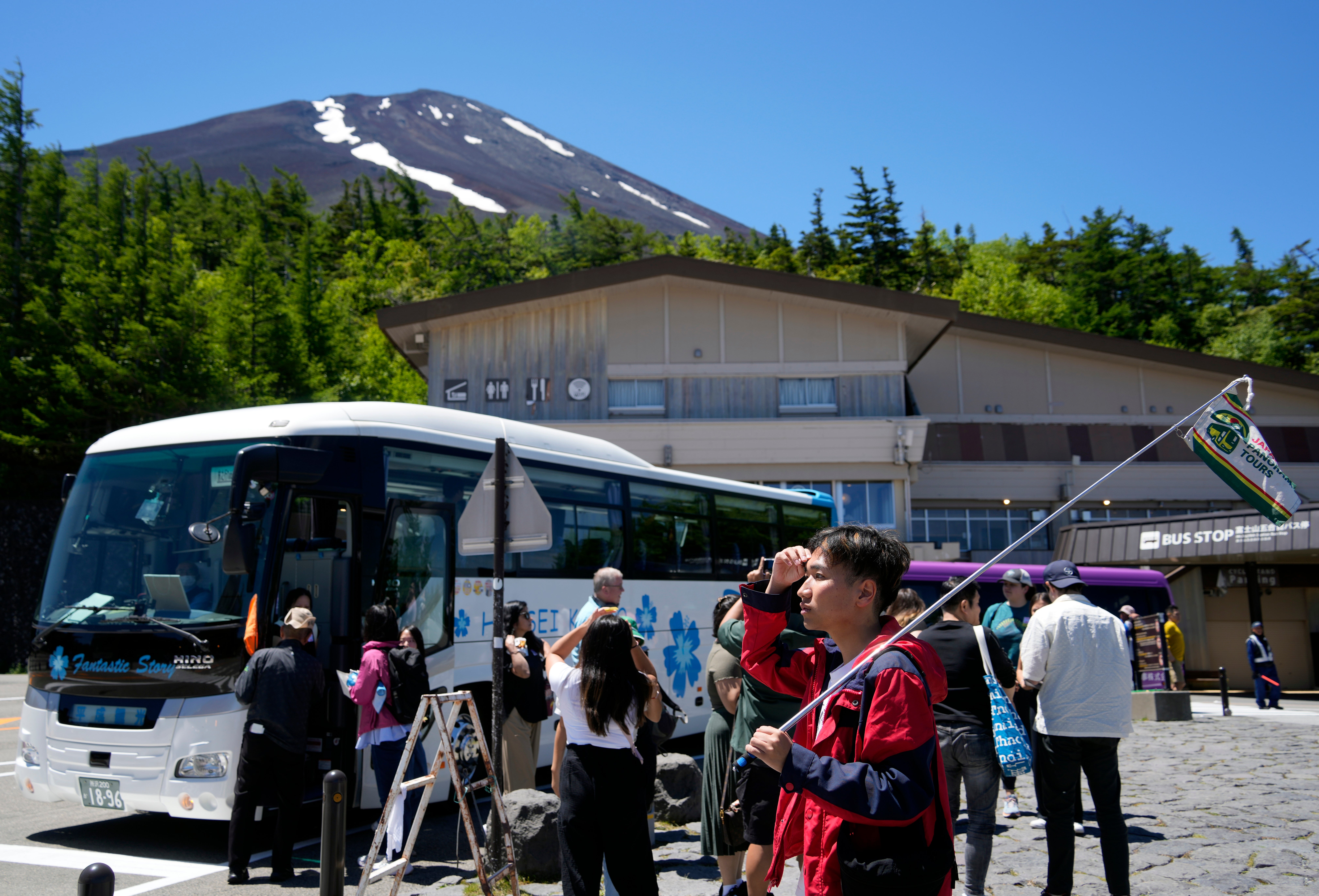There is still no snow on Mount Fuji – first time in 130 years
Unusually warm autumn is delaying first snowfall after hottest summer on record
Your support helps us to tell the story
From reproductive rights to climate change to Big Tech, The Independent is on the ground when the story is developing. Whether it's investigating the financials of Elon Musk's pro-Trump PAC or producing our latest documentary, 'The A Word', which shines a light on the American women fighting for reproductive rights, we know how important it is to parse out the facts from the messaging.
At such a critical moment in US history, we need reporters on the ground. Your donation allows us to keep sending journalists to speak to both sides of the story.
The Independent is trusted by Americans across the entire political spectrum. And unlike many other quality news outlets, we choose not to lock Americans out of our reporting and analysis with paywalls. We believe quality journalism should be available to everyone, paid for by those who can afford it.
Your support makes all the difference.Japan’s iconic Mount Fuji has stayed snowfree well into autumn this year, something that hasn’t happened since recordkeeping began 130 years ago.
Japan’s highest mountain is generally snowcapped by mid-October, signalling the start of winter. This year, however, warmer temperatures have kept Fuji bare, breaking the previous record for latest snowfall, set on 26 October 1955 and tied in 2016.
Meteorologists from the Kofu Local Meteorological Office, located about 40km from Fuji, confirmed that unseasonably high temperatures have delayed snowfall.
They announce the first snowcap of the season as soon as it is visible from their observation point, a tradition dating back more than a century.
Although seasonal weather patterns occasionally lead to delays, officials attribute this year’s unusually late snowfall to ongoing climate trends which have increased average autumn temperatures in recent decades.
The delayed snowfall on Fuji is part of a pattern of unpredictable seasonal changes around the world due to the climate crisis. The longer summers are impacting both snow cover and precipitation. In fact, 2024 is set to be the hottest year on record for the world for the second straight year.

Japan’s coastal and mountain regions have seen similar impact, with warmer autumns and milder winters becoming more common.
The country suffered its hottest summer on record for the second straight year in 2024, with temperatures 1.76C higher than the average from 1991 to 2020. Now, unseasonably warm autumn weather is delaying the first snowfall.
Dozens of cities in Japan have recorded high temperatures, close to or over 30C, in the early days of October, according to analysis from the nonprofit research group Climate Central.
The unusual heat Japan has experienced was made three times more likely because of the climate crisis, the study found.
In 2024, a record number of people died from heatstroke in Tokyo, with 252 people dying between June and September. Most of the victims were elderly people who were found dead in their homes without air conditioning. Earlier this year, Japan’s early bloom of cherry blossoms had also sparked concerns.
Beyond climate concerns, Fuji has faced other challenges, including overtourism. This year, local authorities implemented a tourist tax to help manage the influx, aiming to mitigate the environmental strain from millions of visitors who trek to the iconic mountain each year.

Join our commenting forum
Join thought-provoking conversations, follow other Independent readers and see their replies
Comments